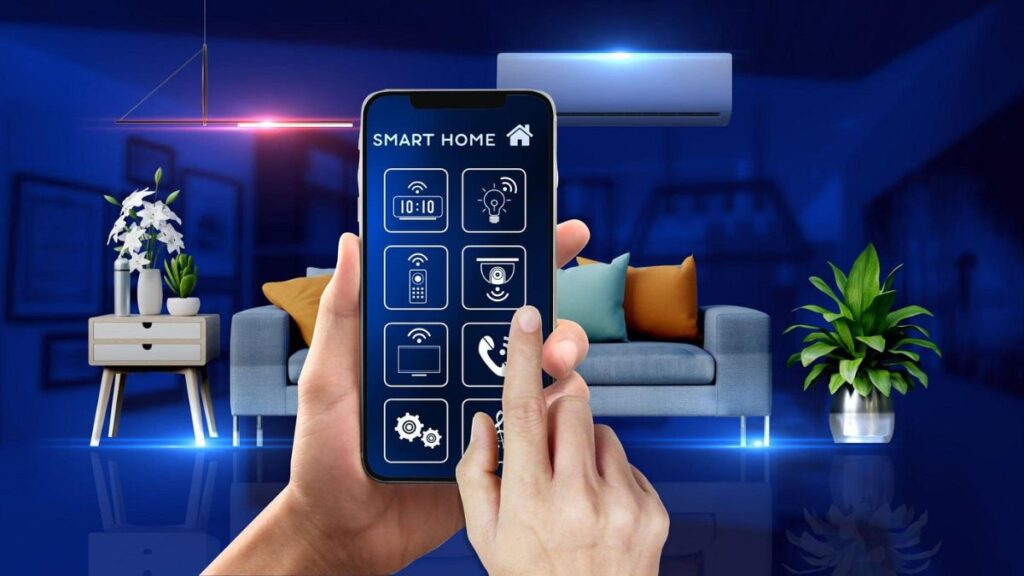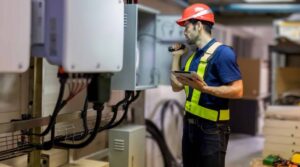In today’s fast-paced world, the integration of smart technology into our daily lives is no longer a futuristic concept, but rather an essential part of modern living. The growing influence of smart devices has reshaped how we work, play, and interact with the environment around us. From homes equipped with advanced automation systems to the widespread use of AI-driven personal assistants, technology has revolutionized the way we experience everyday tasks. This article delves into how smart technology is enhancing everyday living by transforming various aspects of our lives, making them more convenient, efficient, and enjoyable.
The Evolution of Smart Technology
The term “smart technology” refers to devices or systems that are capable of automating tasks, collecting and analyzing data, and improving performance through artificial intelligence (AI) or machine learning. These technologies are designed to be intuitive and responsive, offering real-time solutions to daily challenges.
From the early days of home appliances with basic automation to the current era of interconnected smart homes, wearable tech, and voice-activated assistants, smart technology has come a long way. Today, nearly every aspect of our lives is touched by some form of technology, whether it’s the smartphone in our pockets, the smart thermostat in our homes, or even AI-powered devices that monitor our health and well-being. This progression has led to a more interconnected, efficient, and dynamic lifestyle, allowing for more seamless interactions with the technology around us.
Enhancing Home Comfort and Convenience
One of the most profound impacts of smart technology has been felt within the home. Home automation systems allow users to control nearly every aspect of their living space with ease. From adjusting the lighting and temperature to managing security systems, smart devices offer unprecedented convenience.
Smart Thermostats
Smart thermostats, such as the Nest Thermostat, use sensors and learning algorithms to understand your daily routines and automatically adjust the temperature for comfort and energy efficiency. By learning your preferences over time, these devices can reduce heating and cooling costs, while also ensuring that your home is at the ideal temperature when you arrive.
Smart Lighting
Smart lighting systems enable users to control the brightness, color, and even the ambiance of their lighting through mobile apps or voice commands. These systems not only improve the mood of your home but also contribute to energy savings. Many smart bulbs, like those from Philips Hue, allow users to set schedules or trigger specific lighting conditions based on their routines or external factors like time of day.
Home Security
Smart security systems, including cameras, doorbell monitors, and motion detectors, enhance home safety by providing real-time video feeds and alerts directly to your smartphone. Devices like Ring doorbells allow homeowners to monitor their front doors remotely, ensuring added peace of mind when they are away from home.
Revolutionizing Personal Health and Well-being
Health and well-being are at the forefront of many consumers’ minds, and smart technology has played a pivotal role in this domain. Wearable devices and health-tracking apps are increasingly common, providing individuals with valuable insights into their physical and mental health.
Wearable Fitness Trackers
Wearable fitness trackers, such as the Apple Watch or Fitbit, have become indispensable tools for monitoring physical activity and overall health. These devices not only track steps, heart rate, and sleep patterns but also offer personalized feedback to help users stay on top of their fitness goals. Many fitness trackers are now integrated with other health apps, enabling users to create comprehensive health profiles and make informed decisions about their well-being.
Smart Health Devices
Beyond wearables, a wide range of smart health devices are emerging to monitor specific aspects of health. For example, smart scales measure weight, body fat, and muscle mass, offering detailed insights into your fitness journey. Smart blood pressure cuffs and glucose monitors allow users to track their vital signs and manage chronic conditions more effectively, while also sharing data with healthcare providers for better decision-making.
Mental Health Apps
Smart technology also plays a role in mental well-being. Numerous mobile apps, such as Headspace and Calm, provide mindfulness exercises, guided meditations, and stress-reduction techniques. The rise of AI-driven therapy apps also offers people more accessible ways to seek support for their mental health, which is crucial in a world where stress and anxiety are increasingly prevalent.
Improving Work and Productivity
The advent of smart technology has not only transformed our homes but also our work environments. With the rise of remote work and digital nomadism, many of us rely on smart technology to enhance productivity, manage tasks, and stay connected to the workforce.
Smart Workspaces
Smart offices and workspaces are designed to optimize productivity by integrating tools like voice assistants, smart lighting, and automated scheduling. Smart whiteboards and collaboration tools, such as Google Hangouts or Microsoft Teams, allow teams to brainstorm, share ideas, and work seamlessly together, regardless of their physical location. Automation tools also help streamline routine tasks, reducing the cognitive load on workers and allowing them to focus on more meaningful aspects of their jobs.
AI-Powered Productivity Apps
There are now a host of AI-powered productivity apps designed to enhance work efficiency. Apps like Notion, Todoist, and Trello use machine learning to recommend personalized task prioritization, manage projects, and even automate repetitive tasks. Virtual assistants like Siri, Google Assistant, and Alexa can also help organize schedules, answer queries, and provide reminders—freeing up valuable time for more important tasks.
Remote Work Tools
As remote work becomes more common, tools like Zoom, Slack, and Asana have become indispensable for keeping teams connected and productive. These platforms are continually evolving, integrating smart features such as AI-driven scheduling assistants and real-time language translation, making collaboration across different time zones and languages easier than ever.
Streamlining Transportation and Mobility
Smart technology is also making a significant impact on how we travel and navigate our world. From autonomous vehicles to smart traffic systems, innovation is reshaping transportation and mobility in ways that promise to increase efficiency, safety, and sustainability.
Autonomous Vehicles
While fully autonomous vehicles are still in development, smart features like adaptive cruise control, lane-keeping assistance, and automatic braking are already enhancing the driving experience. These technologies reduce the risk of accidents, improve fuel efficiency, and provide a more comfortable ride for passengers.
Smart Traffic Systems
Smart traffic systems are becoming more widespread, utilizing sensors and AI algorithms to optimize traffic flow and reduce congestion. These systems can monitor traffic patterns in real time and adjust signals to prevent bottlenecks, improving overall transportation efficiency.
Shared Mobility Solutions
The rise of smart mobility solutions like ride-sharing apps (e.g., Uber, Lyft) and electric scooter rentals has also transformed urban transportation. These services offer users a convenient, cost-effective way to travel short distances without the need for a private car, reducing traffic congestion and environmental impact.
Enhancing Sustainability and Environmental Impact
With growing concerns about climate change and environmental sustainability, smart technology is also playing a pivotal role in reducing our environmental footprint. From energy-efficient devices to smart grids, these technologies enable individuals and businesses to make more sustainable choices.
Energy-Efficient Devices
Smart thermostats, lighting systems, and appliances not only improve convenience but also contribute to energy savings. For example, a smart refrigerator can monitor food inventory and adjust temperature settings to minimize energy usage, while smart lighting systems can be programmed to turn off when not in use.
Smart Grids and Renewable Energy
Smart grids are transforming how electricity is distributed and consumed. These grids use real-time data to optimize energy usage, reducing waste and improving the efficiency of energy networks. Additionally, the integration of renewable energy sources such as solar and wind power into smart grids is helping to reduce reliance on fossil fuels and lower carbon emissions.
Sustainable Smart Cities
Cities around the world are adopting smart technologies to reduce their environmental impact. Smart waste management systems use sensors to optimize waste collection routes, reducing fuel consumption and emissions. Additionally, smart water management systems help conserve water resources by detecting leaks and optimizing usage in real-time.
Conclusion: The Future of Smart Technology in Everyday Living
The integration of smart technology into everyday living has already had a profound impact on our homes, work environments, health, and transportation. As advancements continue to unfold, we can expect even more transformative changes in the way we live, work, and interact with the world around us.
The future of smart technology holds immense promise. With innovations like 5G networks, quantum computing, and advanced AI on the horizon, the potential for further enhancing everyday living is limitless. Whether it’s improving sustainability, optimizing personal productivity, or revolutionizing transportation, smart technology is poised to make our lives more connected, efficient, and enjoyable than ever before.
As we continue to embrace these advancements, it is important to consider the ethical and privacy implications of living in an increasingly connected world. Responsible innovation will be key to ensuring that smart technology enhances everyday living while preserving individual autonomy and privacy.



